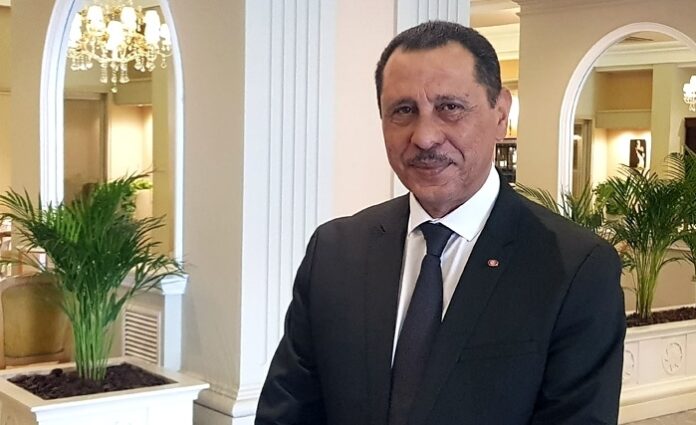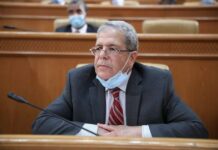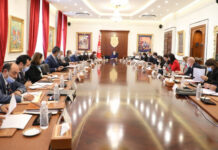Professor of constitutional law Salim Laghmani said today, Tuesday, August 10, 2021, that all roads between the three authorities in Tunisia were “clogged”, and the constitution contributed to deepening the crisis due to its lack of mechanisms for resolving disputes between the authorities.
Laghmani added in a statement to Radio Mosaique that Chapter 80 is present in most international constitutions, and his philosophy is that the danger is outside the state institutions (terrorism, war, natural disaster…), and not within its institutions.
The constitutional law professor explained that Saeed’s reading of Chapter 80 was focused on the imminent danger that could threaten the nation’s entity or independence, considering that it was an incoming reading and could be correct, as he puts it.
He stressed that the imminent danger is the discretion of the President of the Republic within one month, and at the end of the month another authority intervenes, namely the Constitutional Court, which decides whether or not the imminent danger exists.
Al-Lughmani indicated that Chapter 80 does not include a period or extension, and did not specify the exceptional case for a specific period, but rather it ends with the disappearance of the causes of the exceptional case, and therefore the idea of 30 days that can be extended is not present in Chapter 80, according to his expression.
What is Chapter 80 of the constitution on which Qais Said relied?
The President of the Republic, Qais Saeed, decided to freeze all the powers of the House of Representatives, lift the immunity of all members of Parliament, and relieve Prime Minister Hisham Al-Mashishi from his post. The decisions come under Chapter 80 of the Constitution.
The decisions stipulate that Saeed will assume the presidency of the Public Prosecution Office to look into all the files, and assume the executive authority with the help of a government headed by a new prime minister and appointed by the President of the Republic, but what is Article 80 of the Tunisian Constitution?
The decisions stipulate that Saeed will assume the presidency of the Public Prosecution Office in order to find out the President of the Republic in the event of an imminent danger that threatens the entity of the country, the security and independence of the country, with which normal functioning is impossible.
These measures must aim to ensure the return to the normal functioning of the wheels of the state as soon as possible, and the Assembly of the Representatives of the People is considered to be in permanent session throughout this period. In this case, the President of the Republic may not dissolve the Assembly of the Representatives of the People, nor may a motion of censure against the government be submitted.
Thirty days after the entry into force of these measures, and at any time thereafter, the Constitutional Court, at the request of the Speaker of the Assembly of the Representatives of the People or thirty of its members, is entrusted with deciding whether or not the exceptional situation should continue. The court declares its decision publicly within a maximum deadline of fifteen days. The work of such measures shall be terminated when the causes thereof cease to exist. The President of the Republic shall direct a statement to the people.
Rifi-JDD











